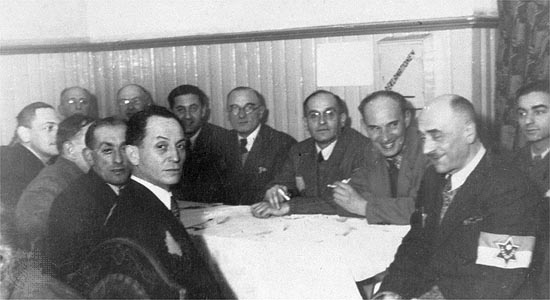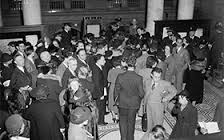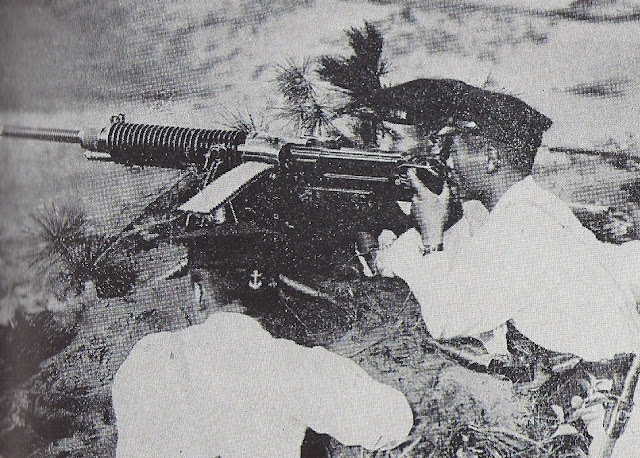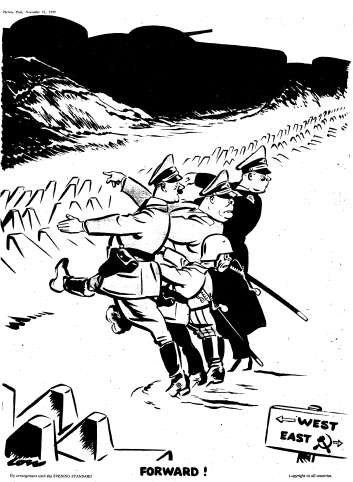Saturday 2 December 1939
 |
| Doric Star ~ Coup de grâce by a torpedo from the Admiral Graf Spee ~ The track visible on right-hand side ~ 2/12/1939 ~ Courtesy Ron Young. |
Winter War Army Operations: Finnish troops are slowly withdrawing to the Mannerheim Line. They are proving adept at ambushing Soviet tanks and setting booby traps. There are some 13,000 front-line Finnish troops on the Karelian Isthmus facing several times their number. The lines are still well ahead of the major Mannerheim Line defenses.
At the north end of the Front, the Soviets have occupied Petsamo and are advancing toward Rovaniemi against light opposition. The Finish 10th Separate Company and 5th Separate Battery, both part of the Lapland Group, face two Soviet Divisions (the 52nd and the 104th).
Soviet 8th Army north of Lake Ladoga captures Suojarvi.
 |
| Winters in Finland are cold. December 2, 1939. Suvilahti, Finland. |
Soviet Propaganda: The Soviet government signs a "pact of mutual assistance" with its puppet Finnish People's government.
German Propaganda: The German state media launch a campaign against Sweden. This contributes to the general sense of unease felt throughout Scandinavia.
Western Front: A French communique states that it is "a quiet day."
Battle of the Atlantic: Battleship HMS Renown and cruiser HMS Sussex attack the German freighter Watussi off South Africa, whose crew scuttles it. HMS Renown rescues the 155 crew and 43 passengers and deposits them for internment in South Africa.
Admiral Graf Spee's Arado floatplane spots the 10,086 British Blue Star Line freighter Doric Star near St. Helena. Captain Stubbs has the British crew radio a distress message and disables the ship. Admiral Graf Spee then takes off the crew and sinks it after taking all worthwhile moveable objects such as sextants and binoculars.
U-56 (Kapitänleutnant Wilhelm Zahn) torpedoes 3,829-ton British freighter Eskdene off Tyne in the North Sea. All 28 crew survive and abandon ship. The Eskdene remains afloat, though abandoned.
U-56 also sinks Swedish vessel Rudolf.
British freighter Calisto hits a mine and sinks.
Convoy OA 45G leaves Southend, Convoy SL 11 leaves Freetown, and Convoy HXF 11 departs from Halifax.
 |
| Doric Star, sunk by the Admiral Graf Spee. |
US Government: President Roosevelt proposes a "moral embargo" on the sale of American arms to unnamed countries perpetuating "terror bombing."
British Government: The government extends conscription to all men aged between 19 and 41 years. There are very limited occupational deferments.
Italy: There are pro-Finnish demonstrations in Rome as the Vatican condemns the Soviet attack.
Sweden: The Army calls up reserves. The Foreign Minister resigns when the government refuses to send troops to help Finland.
Olympics: The IOC announces that, just as in November they had canceled the Winter Olympics at Garmisch-Partenkirchen, Germany, they also now were canceling the summer 1940 Games. Those Games had been planned for Helsinki, but the Winter War makes holding them there impossible.
American Homefront: US politician Harry Reid is born in Searchlight, Nevada. He becomes Senate Majority Leader in the 2000s.
LaGuardia Airport opens.
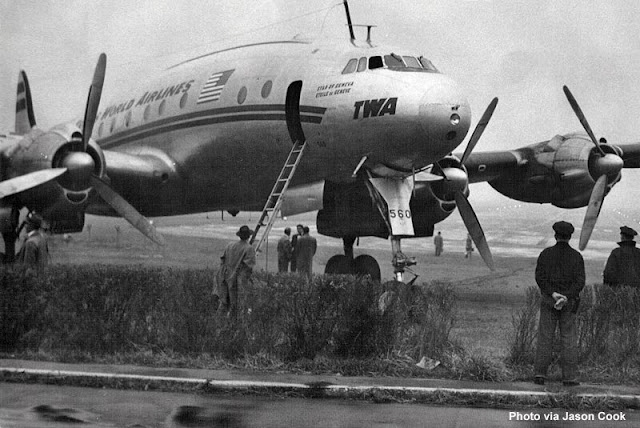 |
| On December 2, 1939, LaGuardia opened to commercial traffic when a TWA DC-3 from Chicago landed minutes after midnight. Within a year, LaGuardia was the busiest airport in the world. |
December 1939
December 1, 1939: Finland Fights for its LifeDecember 2, 1939: First RAF Bombs on Germany
December 3, 1939: Soviets Still Advancing in Finland
December 4, 1939: Molotov to Roosevelt - Mind Your Own Business
December 5, 1939: Prien Returns
December 6, 1939: Attacks on Mannerheim Line
December 7, 1939: Kollaa Holds!
December 8, 1939: Polish Pilots Return
December 9, 1939: First British BEF Fatality
December 10, 1939: The Soviets Capture Salla in Finland
December 11, 1939: Finns Make Their Move
December 12, 1939: Finnish Success in the Winter War
December 13, 1939: Battle of River Platte
December 15, 1939: Chinese Winter Offensive in High Gear
December 16, 1939: Battle of Summa
December 17, 1939: End of Admiral Graf Spee
December 18, 1939: Battle of Heligoland Bight
December 19, 1939: British Disarm Magnetic Mines
December 20, 1939: Finnish Counterattacks Continue
December 21, 1939: Finns Plan More Counterattacks
December 22, 1939: Enter Chuikov
December 23, 1939: Failed Finnish Counterattack
December 24, 1939: Soviets on the Run
December 25, 1939: Fresh Soviet Attacks
December 26, 1939: Vicious Battles at Kelja
December 27, 1939: Grinding Finnish Victories
December 28, 1939: Liberators
December 29, 1939: Finns Tighten the Noose
December 30, 1939: Finnish Booty
December 31, 1939: Planning More Soviet Destruction
2019




